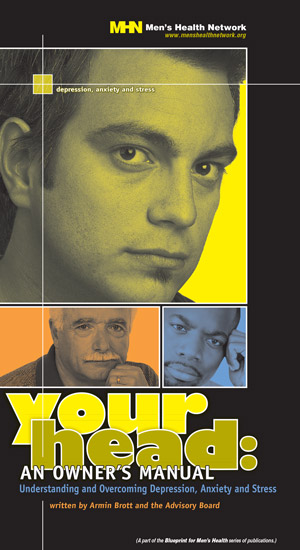Earlier this month, the US Centers for Disease Control (CDC) released a National Center for Health Statistics (NCHS) Brief that outlines the latest data on causes of death in the United States. In particular, the Brief highlights a number of important health disparities between American males and females. Three of its findings were especially alarming:
Men and boys continue to have a higher death rate in nine of the 10 leading causes of death.
“This disparity in male mortality is due to many factors, including the glaring lack of covered well-man visits, as opposed to well-woman visits, which are generally a fully covered benefit under the ACA and most private insurance,” says Ana Fadich-Tomsich, Vice President of Men’s Health Network (http://www.menshealthnetwork.org/). “In addition, the overall healthcare system is inherently non-male friendly, there’s insufficient funding for male health issues, and there’s a disturbing lack of male-focused outreach and education about health and wellness.”
More males than females are dying of cancer. Overall, cancer accounts for 21.9% of all male deaths and 20.7% of female deaths. Again, part of the problem is a lack of funding—particularly at the federal level—for male-specific health issues. For example, while the National Institutes of Health’s annual budget includes a line item for women’s health research, which is appropriate and important, there is no such line item for men’s health. As a result, researchers working on women’s health issues have greater access to funding. Greater access to funding means that more research will be done. And an increase in research tends to reduce mortality. On the other hand, researchers who’d like to focus on men’s health have fewer funding opportunities, which means that less male-focused research gets done. And that, in turn, is a major contributor to the overall male-to-female disparity in mortality.
Males are three to seven times more likely than females to take their own life. It’s no surprise, then, that suicide is the 6th leading cause of death for males and isn’t in the top 10 for females at all. “This tragic disparity is the direct result of poor male-focused screening tools for behavioral health issues that lead to suicide in men,” says Dr. Sal Giorgianni, science advisor for Men’s Health Network. Most mental-health screening tools currently in use designed in a way that they flag symptoms more typically seen in women and ignore those more typically seen in men.“ In addition, says Giorgianni, “few if any clinicians and community leaders are receiving adequate training to identify, interrupt, triage, and manage mental health issues in boys and men.” While mental- and behavioral-health screenings for women and girls are covered for free under the ACA, they are not covered for men and boys.
All of us who work in the field of men’s health—and health in general—sincerely hope that this new data from the CDC will be the catalyst we need to bring the topic of men’s health onto the front burner in any discussions of healthcare, whether in Congress, among presidential hopefuls, or in the media. By doing so, we’ll not only save the lives of hundreds of thousands of men and boys who are dying prematurely, but also improve the lives of the women and girls who love them.
If you’re interested in looking more closely at this data, you can download a copy of the complete report (entitled “NCHS Data Brief No. 350, September 2019: Mortality Patterns Between Five States With Highest Death Rates and Five States With Lowest Death Rates: United States, 2017”) here: https://www.cdc.gov/nchs/data/databriefs/db350-h.pdf
Image by Lauraljstc from Pixabay



Recent Comments